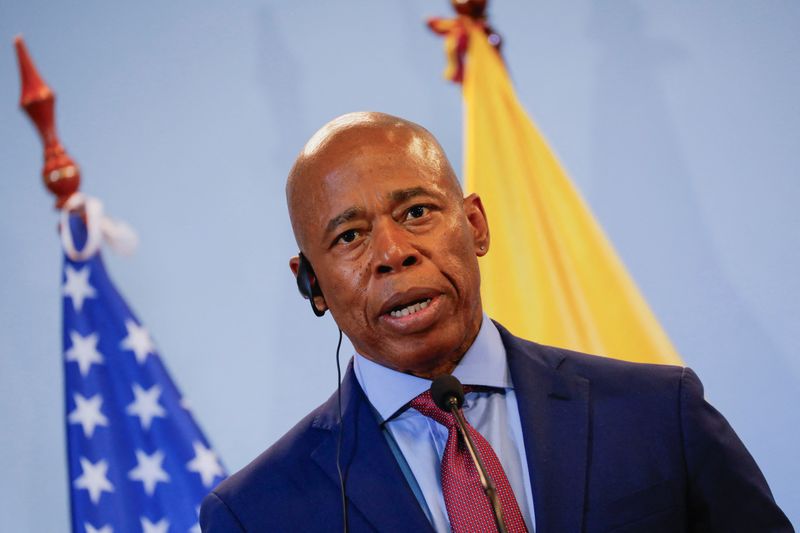By Brad Brooks
(Reuters) – New York Mayor Eric Adams on Friday vetoed legislation that would ban the use of solitary confinement in city jails and a second bill that would force police officers to document more of their stops, but city council leaders vowed to override the vetoes.
Adams, a Democrat and former New York City police captain, said during a City Hall ceremony marking his vetoes that “we cannot handcuff the police, we want to handcuff bad people who are violent.”
New York City’s Democratic-controlled council last month passed the law that seeks to ban solitary confinement, a practice which its opponents say causes physical, psychological, and emotional harm.
But Adams and the labor union representing the city’s jail guards argue such a ban would make it more difficult to protect jail workers from violence by detainees, most of whom are awaiting trial and were denied or unable to afford release on bail.
The legislation forcing police to provide more documented details about their investigative stops was also passed last month. Supporters say it would provide more accountability for police stops in minority neighborhoods, among other factors.
The mayor said that legislation would drown officers “in unnecessary paperwork,” force the city to pay more in overtime, and detract from officers “policing our streets and engaging with the community.”
Adrienne Adams, speaker of the New York City Council, and Sandy Nurse, the body’s criminal justice chairperson, said in joint written statements that the council passed the legislation with a “veto-proof majority” and would soon override the vetoes. Two-thirds of the council’s 51 elected members – or 34 votes – are required to override.
The City legislation banning solitary confinement passed with 39 votes, while the bill requiring more details on police stops passed with 35 votes.
Under current “punitive segregation” rules, jail officials can punish detainees who are violent or otherwise break jail rules by isolating them in a cell for up to 23 hours a day for up to 60 days straight for the most serious infractions.
The bill would reduce that to four hours maximum, with wellness checks by jail staff every 15 minutes. For serious infractions, detainees could be transferred to restrictive housing for up to 60 days in a single year.
(Reporting by Brad Brooks in Longmont, Colorado; Editing by Frank McGurty and Rosalba O’Brien)
